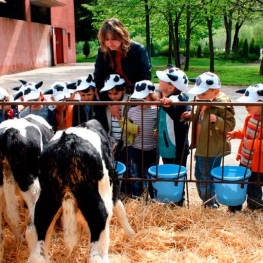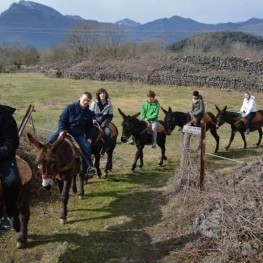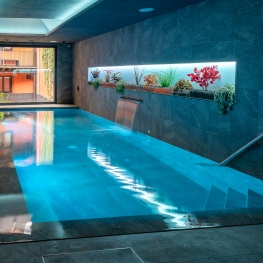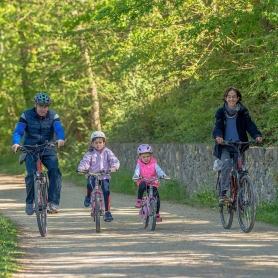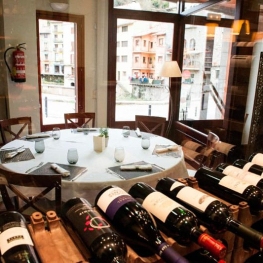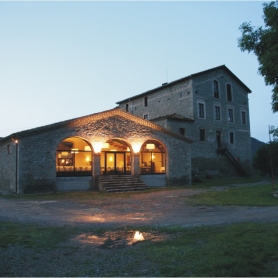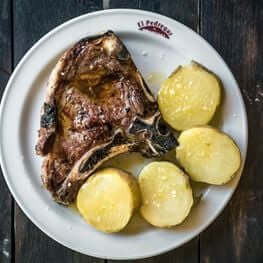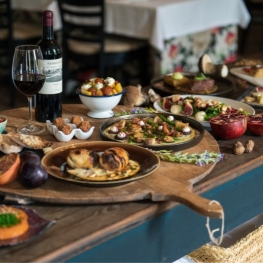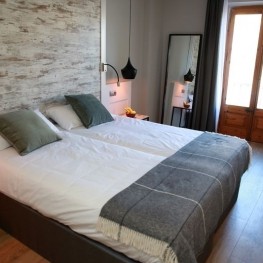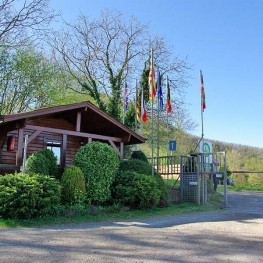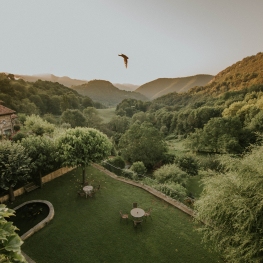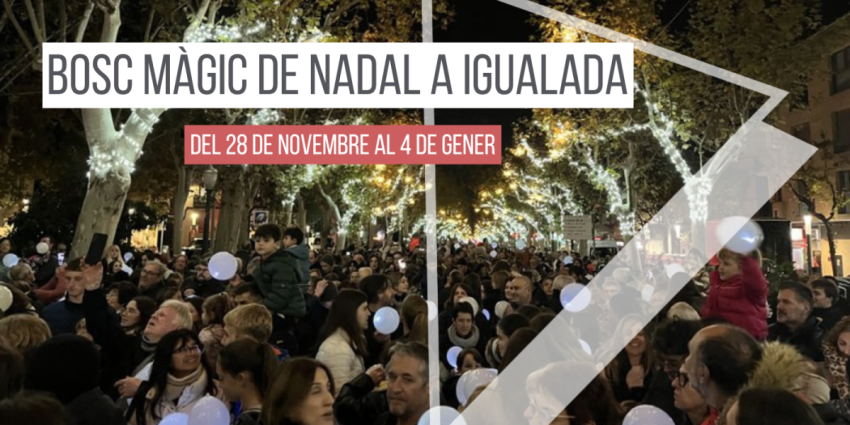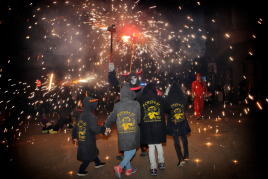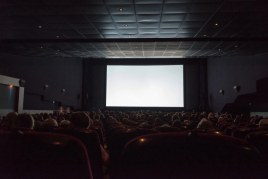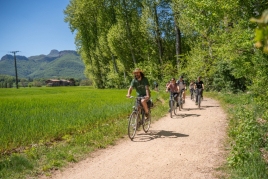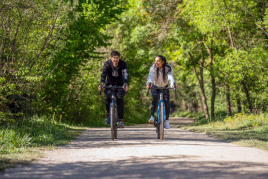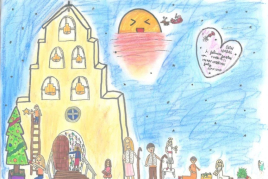La Vall de Bianya, nature and heritage in the Garrotxa
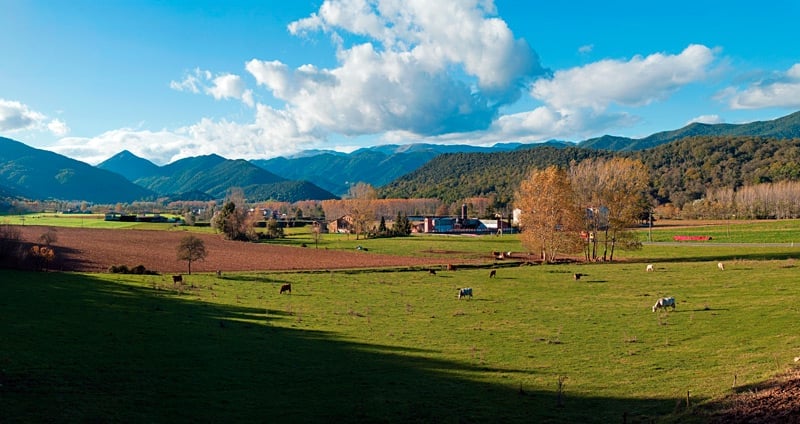
La Vall de Bianya is a landscape to discover in the region of the Garrotxa. A municipality that is a set of valleys and villages with a wide variety of forests, meadows and streams. But in this valley valleys all is nature, heritage also plays an important role.
La Vall de Bianya has retained fifteen churches, historical buildings to which must be added the large farms that rise, some centers that reflect the weight of a peasantry that has preserved the landscape of this area for centuries. A territory since ancient times, has been a place of passage, as evidenced by the ancient Roman road that lies in the middle of forests.
La Vall de Bianya has a variety of locations and items to visit, it is a single municipality but within its municipality has a great geographic diversity and different inhabited areas and farms. The visitors to this area can be raised from the viewpoints of both nature and landscape and historical and artistic heritage.
 For starters we can go to the core of Sant Salvador de Bianya. There we will find the Interpretation Center of La Vall de Bianya where we can find information about this place. This space was once the school and the city and, since 2011, is the Interpretation Center. This equipment offers different visitor services, you can also see an exhibition and audiovisual around La Vall de Bianya and can be purchased different products related to this territory. In addition, educational workshops are offered and is the starting point of several tours. It is open all weekends and holidays from 11am to 14pm.
For starters we can go to the core of Sant Salvador de Bianya. There we will find the Interpretation Center of La Vall de Bianya where we can find information about this place. This space was once the school and the city and, since 2011, is the Interpretation Center. This equipment offers different visitor services, you can also see an exhibition and audiovisual around La Vall de Bianya and can be purchased different products related to this territory. In addition, educational workshops are offered and is the starting point of several tours. It is open all weekends and holidays from 11am to 14pm.
In this same nucleus can visit one of the first churches to find in La Vall de Bianya: the parish of San Salvador, a temple was consecrated 1170. The building, over time, has undergone several changes an elements more interesting it is the exterior decoration is in the window in the center of the apse. Also noteworthy are the brackets there on top of the wall of the apse.
The Roman road of Capsacosta
From the very core of Sant Salvador can link to one of the most curious elements in the valley, the ancient Roman road of Capsacosta.
 This ancient infrastructure was called Via Annia and was a branch of the Via Augusta. From Figueres left a detour that went to the mountain area, up to the Capsacosta and continued into the neck of Ares. Then, already in France today, this route again link up with the principal, the Via Augusta. Currently, in several sections of this Roman road, although you may find the original cobblestones. In the small town of Sant Salvador de Bianya we find the VB2 indicator that will take us to the Roman road. The route is signposted and along its route, find different explanations about this declared of National Interest infrastructure.
This ancient infrastructure was called Via Annia and was a branch of the Via Augusta. From Figueres left a detour that went to the mountain area, up to the Capsacosta and continued into the neck of Ares. Then, already in France today, this route again link up with the principal, the Via Augusta. Currently, in several sections of this Roman road, although you may find the original cobblestones. In the small town of Sant Salvador de Bianya we find the VB2 indicator that will take us to the Roman road. The route is signposted and along its route, find different explanations about this declared of National Interest infrastructure.
Once on the road take the direction of Sant Pau, after the farmhouse Callís the track begins to gain altitude, from there we can start walking on the pavement, we can also observe other details specific to the way they have been preserved as margins made with large stones, drains, rangers wheels.
 If you still have more desire to walk or, instead, we want to make a flight bike we have other options, one is to walk the greenway of Vall de Bianya. This low difficulty path begins at the core of the Canya and its route passes some of the nuclei of La Vall de Bianya, particularly those of San Andrés de Socarrats, Llocalou and Hostalnou of Bianya. The distance is 3.6 kilometers, with a height of 352 meters and a maximum height of 415 meters can be done in just over half an hour, an easy path that allows us to contemplate the quiet environment.
If you still have more desire to walk or, instead, we want to make a flight bike we have other options, one is to walk the greenway of Vall de Bianya. This low difficulty path begins at the core of the Canya and its route passes some of the nuclei of La Vall de Bianya, particularly those of San Andrés de Socarrats, Llocalou and Hostalnou of Bianya. The distance is 3.6 kilometers, with a height of 352 meters and a maximum height of 415 meters can be done in just over half an hour, an easy path that allows us to contemplate the quiet environment.
The churches
 Churches are one of the main architectural features of the valley, rise scattered both small nuclei of La Vall de Bianya as also in the midst of nature, a way to meet both the historical heritage and the landscape at the same time. One of these churches is San Andrés de Porreres, located near the town of La Vall del Bac. The temple is very old, in fact have the first references since 946 but, despite having as base primitive Romanesque architecture, the building has undergone many changes over time.
Churches are one of the main architectural features of the valley, rise scattered both small nuclei of La Vall de Bianya as also in the midst of nature, a way to meet both the historical heritage and the landscape at the same time. One of these churches is San Andrés de Porreres, located near the town of La Vall del Bac. The temple is very old, in fact have the first references since 946 but, despite having as base primitive Romanesque architecture, the building has undergone many changes over time.
 Another interesting is San Miguel del Monte, located in the mountains of the same name. The small temple has the typical characteristics of a Romanesque building and is certainly located in an old strategic location since it is believed that, instead, had previously raised a Roman tower. To get there, take the N-260 road and take the detour indicated.
Another interesting is San Miguel del Monte, located in the mountains of the same name. The small temple has the typical characteristics of a Romanesque building and is certainly located in an old strategic location since it is believed that, instead, had previously raised a Roman tower. To get there, take the N-260 road and take the detour indicated.
On a hill that rises in the middle of the plains of Bianya is the church of San Miguel Despuig, a temple, like others in the area, has very ancient references, specifically come from the year 964. initially in place He raised a Roman temple that was profoundly modified in the eighteenth century. Around the temple is the nucleus of houses that has the same name as the church. Here lived the Bianya family, who named the valley and, in fact, it is thanks to them that this church was built. You can reach the C-153.
 On this road, well we can close access to the church of Santa Margarita de Bianya. This building, despite having undergone several modifications, maintains the structure of the twelfth century, include the bell tower, located on the main facade and decorative details of the front entrance.
On this road, well we can close access to the church of Santa Margarita de Bianya. This building, despite having undergone several modifications, maintains the structure of the twelfth century, include the bell tower, located on the main facade and decorative details of the front entrance.
These are some of the churches that are in the municipality still, if you want to make a more detailed visit also can go see other temples Romanesque rising as Santa María de Sacot, Santa Maria de Castellar del Monte, santa Magdalena del Coll, Sant Ponç de Aulina, San Martí de Solamal, San Martí del Clot, Sant Feliu del Bac, San Martí de Capsec and San Miguel de la Torre.
farmsteads
 The rural character of La Vall de Bianya has done that, apart from the churches, another outstanding architectural elements are farmsteads. The municipality retains large houses which are a reflection of a long tradition of crops and livestock. These homes are characterized by large and have, in the main facade, a large colonnaded arcades and galleries. The size of some of these buildings demonstrates the great prosperity that came to have the owner families. One of the most splendid farmsteads is the farro and, in fact, is also the one that has around a larger property, in the seventeenth century the owner of this house was considered one of the richest in these lands people.
The rural character of La Vall de Bianya has done that, apart from the churches, another outstanding architectural elements are farmsteads. The municipality retains large houses which are a reflection of a long tradition of crops and livestock. These homes are characterized by large and have, in the main facade, a large colonnaded arcades and galleries. The size of some of these buildings demonstrates the great prosperity that came to have the owner families. One of the most splendid farmsteads is the farro and, in fact, is also the one that has around a larger property, in the seventeenth century the owner of this house was considered one of the richest in these lands people.
Another outstanding farmsteads in the area of Torre de San Pedro with a style close to a fortress than a farmhouse. The house, after having different Olot families as owners became Vayreda, relatives of Joaquim Vayreda, one of the most important landscape painters Catalan nineteenth century, say the artist olotí often inspired by the serenity of the scenery around to make his artistic creations.
 Another of the remarkable farmsteads of Vall de Bianya is La Riba, despite having origins that date back to the fourteenth century, its present appearance is the result of the great reform that was made in 1906, a project that gave the building a new look with a modern decoration which is still preserved. These are some of the farms that can be seen in the Vall de Bianya but there are others such as Las Aulina, the Colomer, the Gleis, the Molino de Solà, Colldecarrera or El Peral.
Another of the remarkable farmsteads of Vall de Bianya is La Riba, despite having origins that date back to the fourteenth century, its present appearance is the result of the great reform that was made in 1906, a project that gave the building a new look with a modern decoration which is still preserved. These are some of the farms that can be seen in the Vall de Bianya but there are others such as Las Aulina, the Colomer, the Gleis, the Molino de Solà, Colldecarrera or El Peral.
the Farro
 Gastronomy is another interesting point that we can discover in La Vall de Bianya, one of the typical dishes of the valley is the Farro, a delicacy takes advantage broth to boil blown white corn flour. This cereal is still grown today in the valley and the dish that follows, the farro, you can try the local places. Elements that attest to the importance achieved maize cultivation in the area is the existence of up to 20 flour mills. These facilities were an important element of subsistence and producing cornmeal with which the inhabitants of the valley fed.
Gastronomy is another interesting point that we can discover in La Vall de Bianya, one of the typical dishes of the valley is the Farro, a delicacy takes advantage broth to boil blown white corn flour. This cereal is still grown today in the valley and the dish that follows, the farro, you can try the local places. Elements that attest to the importance achieved maize cultivation in the area is the existence of up to 20 flour mills. These facilities were an important element of subsistence and producing cornmeal with which the inhabitants of the valley fed.
Each year a tribute to this rich harinero past is through the Fair Farro, at this fair you can taste different specialties made with corn as the main element, products such as sausage, bread, cookies, cupcakes and Farro candies. You can also taste beer made from maize, known as the Bianyenca. The celebration of this event has served to take a greater awareness of this past making some old mills as the Colomer mill, the Molino Nuevo and La Boada be restored. During the fair you can visit any of these mills and see live demonstration of how flour production was made.
Farro Fair the first weekend of February is celebrated.
What to do
Rucs i Someres
Les Preses (a 5.8 Km)Rucs i Someres is dedicated to organizing tourist rides on Catalan donkeys…
Apartaments Entre Volcans
Olot (a 4.5 Km)Modern and well-located accommodation in Olot, with an indoor pool and spa…
GARROTXA amb Bici
Olot (a 4.6 Km)GARROTXA amb Bici, (previously known as "Centre Logístic de Bicicletes") is a…
Where to eat
Restaurant el Pont 9
Camprodon (a 13.3 Km)A restaurant serving humble and simple cuisine, where you can enjoy the…
Restaurant Dachs
Les Llosses (a 28.8 Km)Restaurant Dachs offers versatile spaces for celebrations in Les Llosses, with rustic…
Braseria Les Comes
L’Esquirol (a 19.4 Km)Located on the premises of the Anigami Adventure Park, they offer menus…
La Santa Restaurant
Ribes de Freser (a 25.9 Km)Our fires cook locally sourced food, harvested using traditional methods. We support…
Where to sleep
Hotel Cims de Camprodon
Camprodon (a 13.3 Km)The Hotel Cims Camprodon is located right in the center of Camprodon,…
Càmping les Preses Natura
Les Preses (a 7.9 Km)Camping Les Preses Natura, located in the Natural Park of the Volcanic…
Casa Etxalde
Camprodon (a 14.1 Km)Beautiful mansion built in the early twentieth century surrounded by green meadows…
Apartaments Entre Volcans
Olot (a 4.5 Km)Modern and well-located accommodation in Olot, with an indoor pool and spa…


